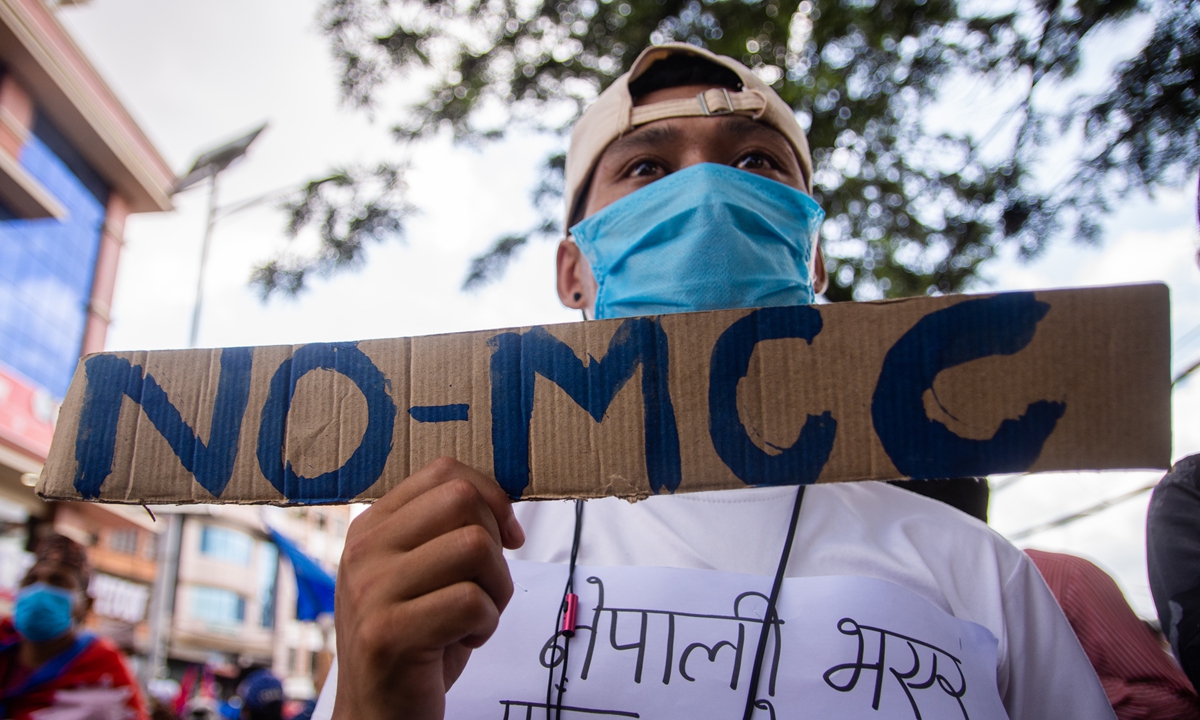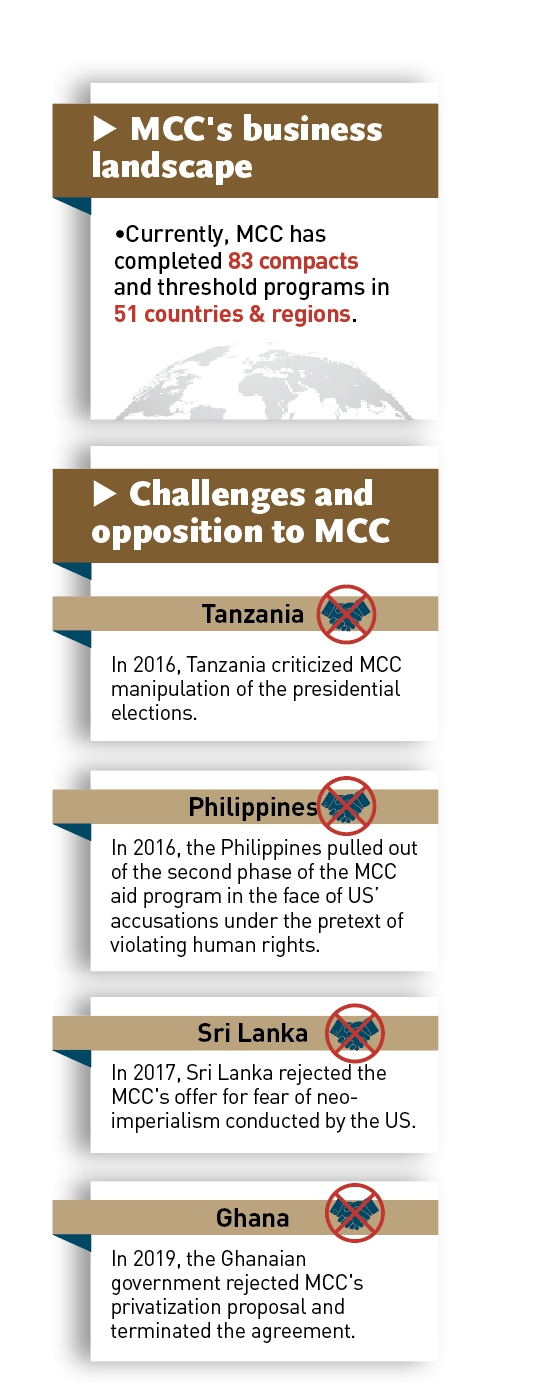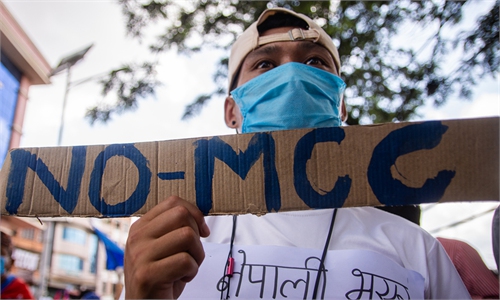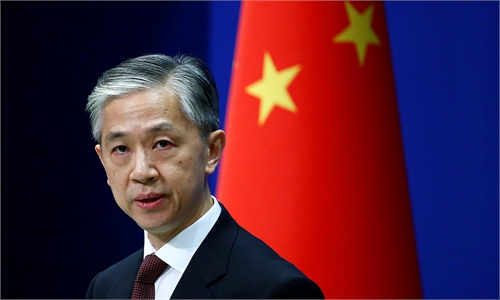IN-DEPTH / IN-DEPTH
Fed up with political malevolence, recipient countries reject MCC over questionable terms

A Nepalese youth holds a cardboard sign during a protest against Millennium Challenge Corporation (MCC) programs in Kathmandu, Nepal, on June 27, 2020. Photo: AFP
As of February, 2022, the Millennium Challenge Corporation (MCC) has completed 83 compacts and threshold programs in 51 countries and regions across Africa, Asia, Eastern Europe, Latin America, and the Pacific. But many in those countries have complained about the MCC's political interference.According to the report issued by the US Congressional Research Service, the MCC has entered into 37 grant agreements with 29 countries as from 2004 to 2019, originally envisioned at $5 billion annually, but congress has appropriated just $900 million annually the 2011 fiscal year, which has caused increased resistance and abandonment by brecipient countries.
In 2016, as Tanzanian critics slammed the MCC for interfering in the local presidential election, the MCC announced it would suspend its partnership with Tanzania amid deteriorated relations, which Tanzanian then president John Magufuli regarded as an opportunity to get rid of donor dependence for Tanzanians.
In the same year, Philippine officials criticized the US for delaying decisions on MCC aid programs under the pretext of "human rights." Duterte's government said it won't bow to conditions imposed by the US to receive aid.
In 2017, MCC targeted two strategically important South Asian countries: Nepal and Sri Lanka. The Sri Lankan government rejected the offer on the grounds that MCC is an instrument of neo-imperialism pursuing economic hegemony over poorer countries. Nepal thus became the focus of the US strategy.
In 2019, after the Ghanaian government rejected MCC's privatization program, terminating a contract with a private utility provider, the MCC canceled a $190 million in grants to Ghana.
Observers noted that of the countries and regions that have completed compacts with the MCC, only a handful have renewed them.
To critics, the MCC's motives are highly suspect. To boost its economy, the US urgently needs to open up overseas markets and develop policies with developing country that are conducive to safeguarding the interests of US transnational capital. Thus, the MCC is essentially a modern imperialist tool for the US to toss out strategic bait to developing countries for political manipulation, economic control, and ideological induction, analysts pointed out.

Graphic: GT


